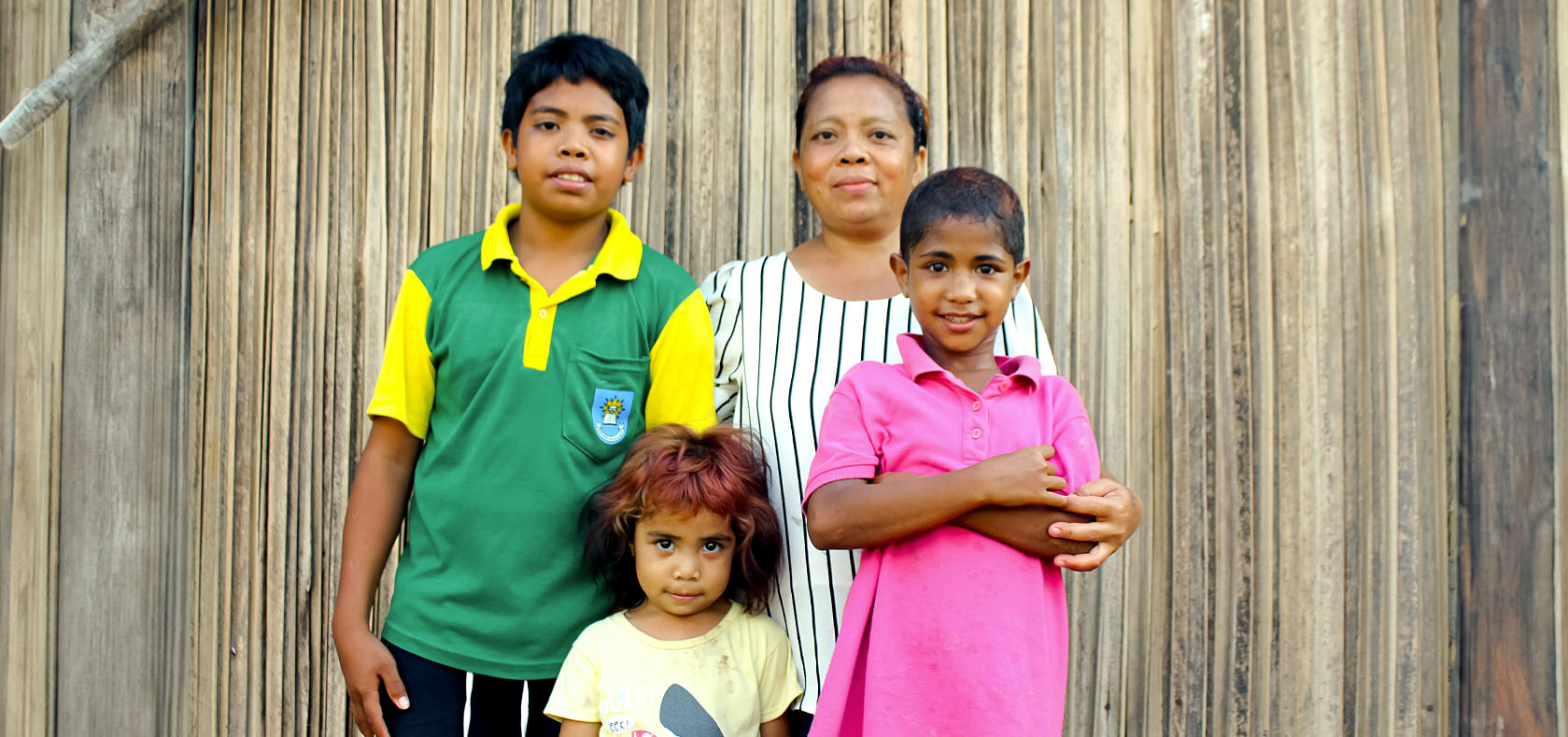A 13-year-old student in Timor-Leste learns how to respect others despite a violent childhood
Date:
Author: Magdalena Pinto

Dili, Timor-Leste — At home, school and in his neighbourhood, the boy grew up surrounded by people who hit him -- and he hit back. Now Deonisio Moniz, 13, has learned to peacefully cope, thanks to a programme jointly run by Plan International and UN Women.
Deonisio, is a seventh-grade student at EBC Sandalo, a primary school in Covalima municipality, in the country’s southwest. His mother, Maria, is a farmer who has been taking care of him and his seven siblings since their father left home. They live in a low-income neighbourhood.
Deonisio said his mother, his siblings and his teachers hit him to make him learn. He said he saw many fights in the neighbourhood and took up martial arts to defend himself. It all made him see violence as the way to educate others people and as a stamp of his superiority over them.
In July 2023 Deonisio and his mother together attended Connect with Respect, a school-based programme that aims to prevent violence against women and girls by addressing harmful social norms among young students, their teachers and their parents. Plan International jointly runs the programme with UN Women under the Together for Equality project, funded by Korea International Cooperation Agency (KOICA).
Deonisio and his mother attended the sessions at the school after his classes, he in the students’ group and his mother in the parents’ group. Through role plays, group tasks and other activities, they learned how to change their ideas about violence, harassment, gender inequality and gender-based violence.
In November 2023, Deonisio recounted his experience to Guilermino Pinto, a Plan International officer in Covalima:
“Initially, I had no interest to engage in the Connect with Respect programme, but after the facilitator introduced the activity about building respect and different types of violence, it made me curious.
I realized how I used to hit my younger siblings or decided to respond with violence when my friends bullied me. These hurt me, but I had been accustomed to violence. These behaviours hurt my friends and they did nothing against me, which made me feel superior.
After sessions of activities, I avoided hitting my friends and siblings because I learned that it hurts and embarrasses them. and we started to talk about preventing fights and bullying. I feel that they like to be around me now.”
Deonisio’s mother said: “He started showing respect to his siblings and even towards me as his mother. I see this as a significant change resulting from the training. Deonisio used to have a challenging attitude, not paying attention when I spoke to him. However, he has now transformed his approach to making friends, focusing on those who support his development. I am thrilled by the positive change in my son.”
Deonisio said the training also changed his mother.
“My mom also used to think that violence was a solution to correct our behaviour, which often put us into silence, pain and self-isolation,” he said. ”Now she understands that using violence is an issue and she builds communication to bring the children closer and show her more respect.”
About Connect with Respect
From November 2022 to February 2024, a total of 1,949 teachers, students and parents participated in Connect with Respect, which covers four of the 14 municipalities of Timor-Leste. The Connect with Respect is part of the four-year programme’s Together for Equality runs until November 2024.
The programme complements the Timor-Leste Government’s National Action Plan on Gender-Based Violence, which includes a strategy to prevent violence by changing social attitudes and behaviours.
The other partners in Together for Equality are Secretary of State for Equality of Timor-Leste, United Nations Population Fund, International Organization for Migration, and United Nations Development Programme.